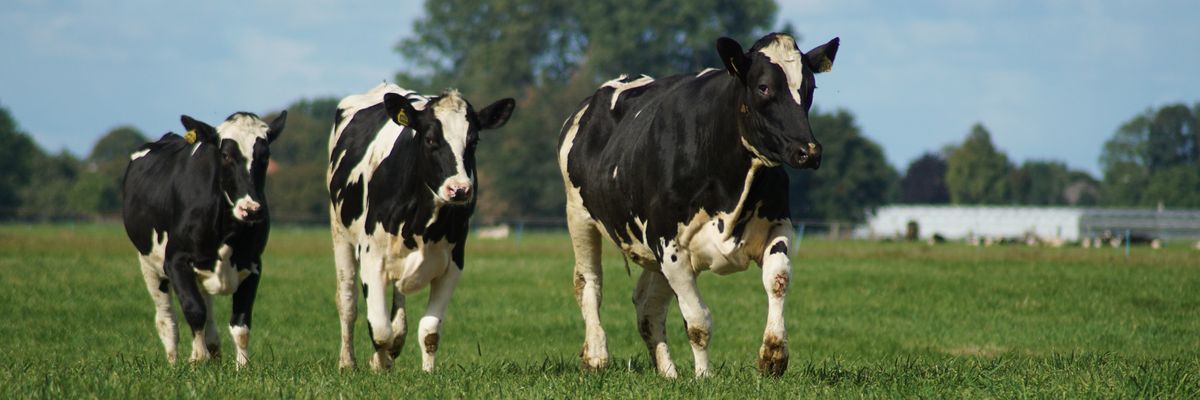I consider myself lucky to be a fourth-generation family farmer in mid-Michigan. For years, my family had a thriving dairy cow herd on our 300-acre centennial farm. But as the years passed by, we were faced with the reality of surprise jumps in milk pricing and corporate dairy’s growing power. Eventually, after a tough decision, we stopped raising dairy cows. This was our livelihood, but we could not make a living the way things were.
Across the Midwest, due to the oversupply of dairy, independent farmers are forced to
dump their milk, wasting precious time and money, and leaving the future of small dairy farms in peril. Imagine what thousands of gallons of wasted milk looks like; this situation is an unfair reality for independent farmers across the country whose viability is at risk. This problem is leaving our family farms in a dire state: Since 2018, more than 450 dairy operations in Michigan closed their doors.
The upcoming farm bill is an opportunity to save small dairy farms and to make our food system more secure. Michigan Farmers Union, along with our counterpart, Wisconsin Farmers Union, have a solution to preserve small dairy farms while ensuring independent farmers have a voice. Through our
Dairy Together campaign, we are proposing a federal program to manage the unchecked growth of large-scale dairies and to preserve local agriculture. It’s time we rein in the corporate influence wreaking havoc on farmers and eaters alike.
The exponential growth of dairy operations is leading to overproduction, which hurts farmers and the consumer.
The Dairy Together initiative proposes a mandatory program for managed growth in the 2023 farm bill that is based on market demand and price stability. Through this program, if an operation wanted to grow above their allowable rate, they’d have to pay a premium (called a market access fee) in order to produce more milk. The allowable growth rate would be determined by the historic production levels based on each individual operation. As a result, our country would see more success on family farms because there would be fewer incentives granted to large-scale corporate agriculture.
Corporate megafarms are one of the leading existential threats to independent farmers and our food system, and the dairy sector is not immune to this problem. In 2017, the U.S. Department of Agriculture
found that just 2,000 farms with herds of at least 1,000 dairy cows produced over half of our country’s milk. In contrast, in 1992, roughly 500 of those operations produced 10% of the country’s milk. Deregulation in agriculture following the 1996 farm bill—dubbed Freedom to Fail—allowed corporate agriculture to scale up exponentially, putting tens of thousands of independent farms out of business.
In order to perpetuate this outsized market share, wealthy agriculture companies hire lobbyists to write laws that protect their bottom line while everyone else pays the price—especially independent farmers. While dairy production and the total headcount of cattle are growing in Michigan, there is an actual
decline in the number of dairy farms, which means that smaller farms are dying and the corporate operations are getting larger.
The exponential growth of dairy operations is leading to overproduction, which hurts farmers and the consumer. When supply and demand aren’t in check for the dairy sector, smaller operations struggle to make ends meet, while large corporate operations find it easier to recoup their losses due to their scale. This “get big or get out” mentality is hurting the vitality of rural farming communities and independent farmers across the country. Additionally, overproduction leads to volatile pricing, leaving families buying dairy in the lurch when groceries are already expensive.
For growth management to work, the program needs to be implemented nationally with government authorization and the full buy-in from farmers. Farmers would have direct control in growth management and price stability. Much of this oversight would happen under a farmer-led board that is elected regionally, ensuring that farmers have meaningful input in the development, implementation, and governance of this program.
As we look to the farm bill, which is supposed to get passed every five years, our federal lawmakers must pay attention to the growing insecurity that dairy farmers across the country are facing. As my own Senator Debbie Stabenow (who leads the farm bill process in the Senate) noted when retiring, heralding the next generation of leaders is paramount. In order to leave the state of dairy better than how we found it, now is the moment to heed the call for fairer and more competitive markets. I urge you to contact your federal lawmakers in support of a growth management plan for dairy in the 2023 farm bill.

